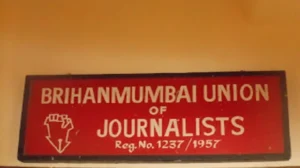Prominent citizens, including artists, environmental and social activists, parents, teachers, professionals, adivasis, dalits and farmers, today spoke out against the illegal and disproportionate response of the government in targeting young activists, including Disha Ravi, and the government’s intent to criminalise dissent.
At a press conference organised by the National Alliance of People’s Movements, Coalition for Environmental Justice in India and the People’s Union for Civil Liberties, Kavita Srivastava, Nagraj Adve, Ram Wangkheirakpam, Medha Patkar, Sandeep Pandey, TM Krishna, Meera Sanghamitra, Abhilasha Singh, Ashish Kothari, Nityanand
Jayaraman, Leo Saldanha, V. Suresh, Vinay Sreenivasa and Ulka Mahajan spoke of the need to engage in a dialogue with protesting students, environmentalists, farmers etc.
Here is their press release:
The ongoing attack on youth climate activists by the Indian state is symptomatic of a growing trend to deal with the democratic right to freedom of speech and dissent with an authoritarian hand, instead of engaging in dialogues as would be befitting of a truly democratic nation. The manner in which Disha Ravi, a young 22 year climate activist has been treated, has the hallmarks of a state that is readily willing to flout rule of law and established procedural norms, instead of listening to the country’s youth. The warrants issued against two more young people, Nikita Jacob and
Shantanu Muluk, and the selective ‘leaks’ to the media from Disha’s private messages, are all attempts to paint these young people as part of an international conspiracy to destabilise India.

These actions are aimed at diverting public attention from the most pressing needs of the nation, such as the farmers’ crisis, the ecological collapse, and the economic insecurity of hundreds of millions of people, all intensified by the ongoing selling out of natural resources to corporate interests. Rather than put all its attention into tackling these issues, the government is cooking up patently false narratives of conspiracy and terrorism. There is nothing seditious in the actions of the young people being targeted, or of tens of thousands of other youth involved in social and
environmental issues. Challenging the state for its lack of attention to their collective futures and the future of the country is not an act of sedition.
Unable and unwilling to engage with the protesting farmers, the Government is busy trying to use the Khalistani brush to tarnish their movement and those who support them, including now the youth environmental activists. This is shameful over-reach and characteristic of a bully state.
The disturbingly frequent use of undemocratic laws like UAPA, or the ease with which charges of colonial era sedition charges are being levelled, is far higher and more frequently employed than even during colonial times! These have been used against many senior activists, professionals, educators, journalists and others; now they are being used against very young people.
As teachers, parents, researchers, environmental and social activists, adivasis, dalits, farmers, and professionals from and also representing a wide range of movements, networks and sectors, we are very deeply concerned about these
actions of the Central Government. Such actions indicate the tendencies of the Indian state moving towards more authoritarianism. More than 35,000 people have condemned the government’s actions, and called for upholding the
democratic traditions of India: http://chng.it/NJCzCmkXnm.
In light of the above, we demand that:
- Disha Ravi must be released immediately withdrawing all charges made
against her. Warrants against Shantanu Muluk and Nikita Jacob must also be
dropped, and no further action should be taken against youth who have been
supporting the farmers’ movement and social and environmental justice
causes. - An open dialogue must be initiated with youth environmental and social action
groups and their well-justified concerns about their futures, to come up with
policies and programmes that can safeguard India’s present and future
generations. - A national level, transparent review of legal provisions like sedition, and of
laws like UAPA, must be initiated with the intent of replacing them with
provisions and laws that help secure the people of India within a framework of
constitutionally endowed democratic rights. - All processes of decision-making on development, environment and
livelihoods must be deeply democratised, ensuring the core involvement of
vulnerable communities and sections (including women, youth, ‘disabled’, and
LGBTQ+), and affected or interested citizens.
Contacts:
Ashish Kothari, ashishkothari@riseup.net
Leo F. Saldanha, Coalition for Environmental Justice in India, cejiindia@gmail.com
Meera Sanghamitra, National Alliance of People’s Movements,
meerawrites@protonmail.com
Kavita Srivatsava, Peoples Union for Civil Liberties, Kavita.pucl@gmail.com


